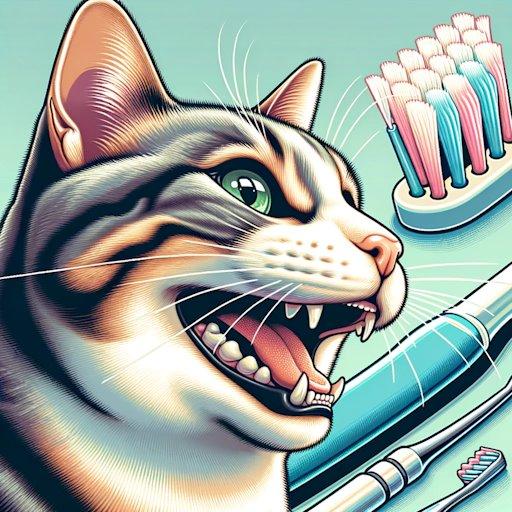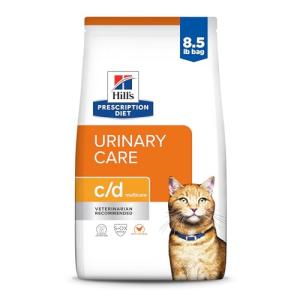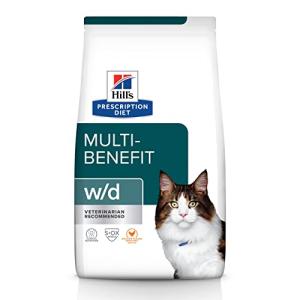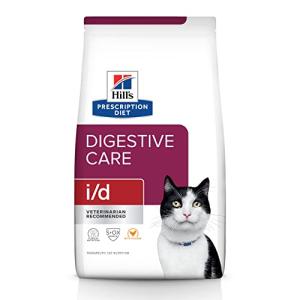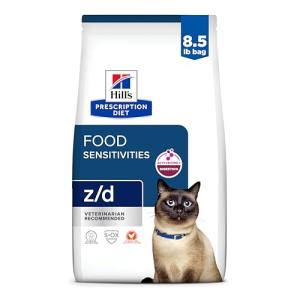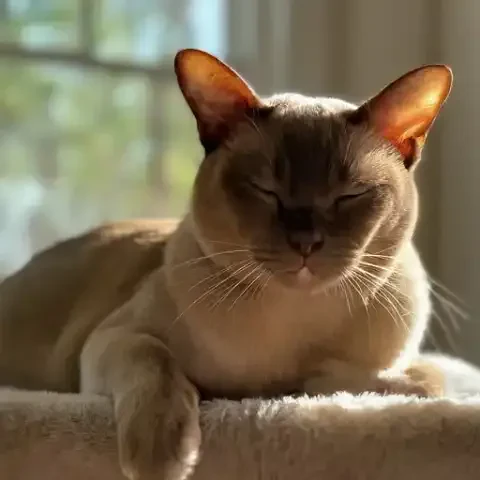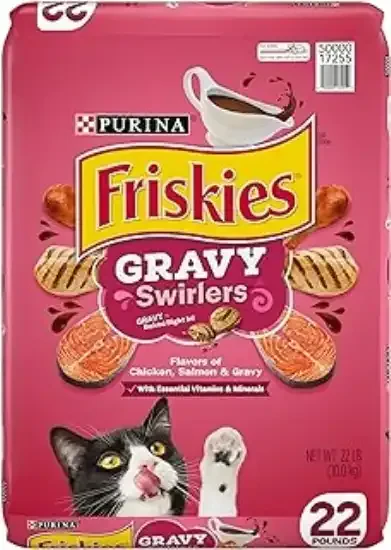A cat's purr, a gentle head nudge, the soft padding of their paws – these are the joys of feline companionship. But behind those adorable whiskers and captivating eyes, a silent threat can lurk: dental disease. It's a surprisingly common issue, affecting a significant portion of cats, and it can cause more than just bad breath. Untreated dental problems can lead to pain, infection, and even damage to vital organs like the heart and kidneys. Protecting your cat's dental health is crucial for their overall well-being, and it's more achievable than you might think. With proactive care, regular checkups, and a good understanding of potential problems, you can ensure your feline friend enjoys a lifetime of healthy smiles. This article will guide you through the essentials of feline dental care, from daily home routines to the importance of professional cleanings and the role of diet.
Understanding the specific dental issues cats face is the first step in effective care. Periodontal disease, an inflammation and infection of the structures supporting the teeth, is a major culprit. It starts with gingivitis, the inflammation of the gums, and can progress to periodontitis, where the supporting bone and tissues are destroyed, potentially leading to tooth loss. Another common problem is tooth resorption, a process where the tooth structure is gradually broken down and absorbed by the body. This can be incredibly painful and often requires tooth extraction. Stomatitis, an inflammation of the mouth tissues, is another challenging condition, often with complex underlying causes. And just like us, cats can also experience fractured teeth, often from trauma, which can be quite painful and require veterinary intervention.
Recognizing the signs of dental trouble is crucial for early intervention. Bad breath, or halitosis, is often the first noticeable symptom. While some cats naturally have slightly "fishy" breath, a truly foul odor is a red flag. Excessive drooling, especially if it's tinged with blood, can also indicate a problem. A cat struggling to eat, chewing on only one side of their mouth, or dropping food may be experiencing dental pain. Pawing at the mouth, weight loss, or even changes in behavior like irritability or hiding can also signal dental discomfort. Early detection is key because it prevents pain, halts further damage, and minimizes the risk of the infection spreading and affecting other parts of the body.
Home dental care forms the bedrock of a healthy mouth. Just like with humans, daily tooth brushing is the gold standard for preventing plaque and tartar buildup. It's the most effective way to remove plaque before it hardens into tartar, which can only be removed by a professional. Choosing the right tools is essential. Never use human toothpaste on your cat, as it contains ingredients that are toxic to them. Opt for a cat-specific toothpaste, often flavored to be more palatable. A soft-bristled toothbrush designed for pets is also ideal. Introducing brushing gradually is key. Start by getting your cat used to you touching their mouth and teeth with your finger. Then, introduce the toothbrush and toothpaste slowly, using positive reinforcement like treats and praise. Focus on the outer surfaces of the teeth, as this is where plaque tends to accumulate most. Don't worry about getting every single tooth every time; consistency is more important than perfection. If your cat resists, don't force it. Try different techniques, flavors, or even consider dental wipes or gels as supplementary options.
Dental diets can play a supporting role in maintaining oral health. These specially formulated foods are designed to help reduce plaque and tartar buildup. Some work by having a larger kibble size, encouraging more chewing and thus scraping the teeth. Others contain ingredients that help prevent plaque from mineralizing into tartar. Dental diets are available in both dry and wet forms. While they can be beneficial, they shouldn't be relied upon as the sole method of dental care. Always consult with your veterinarian before switching your cat's diet to ensure it meets their nutritional needs.
Dental treats and chews can be a helpful addition to a comprehensive dental care routine, but they are not a substitute for brushing. Choosing safe and effective options is crucial. Look for treats specifically designed for dental health and avoid anything that could be a choking hazard or easily broken into small pieces that could be swallowed whole. Be mindful of the calorie content of treats, as excessive consumption can lead to weight gain.
Dental wipes and gels can be useful for cats who resist brushing. Wipes can be used to gently clean the teeth and gums, while gels can be applied to the gum line. While they can help reduce plaque, they are not as effective as brushing. They are best used as a supplement to brushing, or as a way to maintain oral hygiene between professional cleanings.
Water additives designed to promote oral health are available, but their effectiveness can vary. They typically work by helping to reduce plaque and tartar buildup. It's important to use veterinarian-recommended products and follow the instructions carefully. Water additives should not replace other forms of dental care.
Even with the most diligent home care, professional dental cleanings are an essential part of maintaining your cat's oral health. During a professional cleaning, your cat will be placed under general anesthesia to ensure their safety and comfort. The veterinarian or veterinary technician will then thoroughly scale and polish the teeth, removing plaque and tartar both above and below the gum line. This is crucial because tartar buildup below the gum line can cause gingivitis and periodontitis. Dental X-rays are often taken to assess the health of the tooth roots and surrounding bone. A thorough oral examination is also performed to identify any problems, such as fractured teeth, tooth resorption, or oral tumors. If necessary, teeth may be extracted during the procedure. Professional cleanings are essential because they address plaque and tartar that accumulate below the gum line, which cannot be reached by brushing alone.
The frequency of professional dental cleanings will depend on your cat's age, breed, and individual needs. Most veterinarians recommend annual or bi-annual dental checkups and cleanings. While the cost of professional dental care can seem significant, it's an investment in your cat's long-term health and can prevent more costly and complex problems down the road.
Diet plays a significant role in overall health, and this includes dental health. The debate about dry versus wet food and its impact on dental health is ongoing. Proponents of dry food argue that the kibble can help scrape plaque off the teeth as the cat chews. However, the effectiveness of this depends on the kibble's size, shape, and texture. Wet food, on the other hand, is less likely to have a cleaning effect and some believe it may even contribute to plaque buildup. Ultimately, the best diet for your cat's dental health is one that is balanced, nutritious, and appropriate for their age and health condition. Consult with your veterinarian for personalized recommendations. Raw food diets present their own set of considerations and should be discussed with your vet. It's crucial to avoid feeding your cat sugary treats or human food scraps, as these can contribute to dental problems.
Making dental care a regular part of your cat's routine is vital for long-term oral health. Start early by introducing dental care to kittens. The earlier they get used to having their mouth handled, the easier it will be to brush their teeth as they get older. Consistency is key. Regular home care, including daily brushing, is essential for preventing plaque and tartar buildup. Use positive reinforcement to make dental care a positive experience for your cat. Offer treats, praise, and play after brushing or other dental care routines. And finally, schedule regular veterinary checkups, including annual or bi-annual dental exams, to ensure your cat's teeth and gums remain healthy.
Maintaining your cat's dental health is an essential part of responsible pet ownership. By prioritizing home care, including regular tooth brushing, providing a balanced diet, and scheduling professional dental cleanings, you can help your feline friend enjoy a lifetime of healthy smiles. Remember, dental health is directly linked to overall well-being. A healthy mouth means less pain, a lower risk of infection, and a happier, healthier cat. Don't hesitate to consult with your veterinarian if you have any questions or concerns about your cat's dental health. Taking proactive steps now will pay off in the long run, ensuring your cat's comfort, happiness, and longevity.
